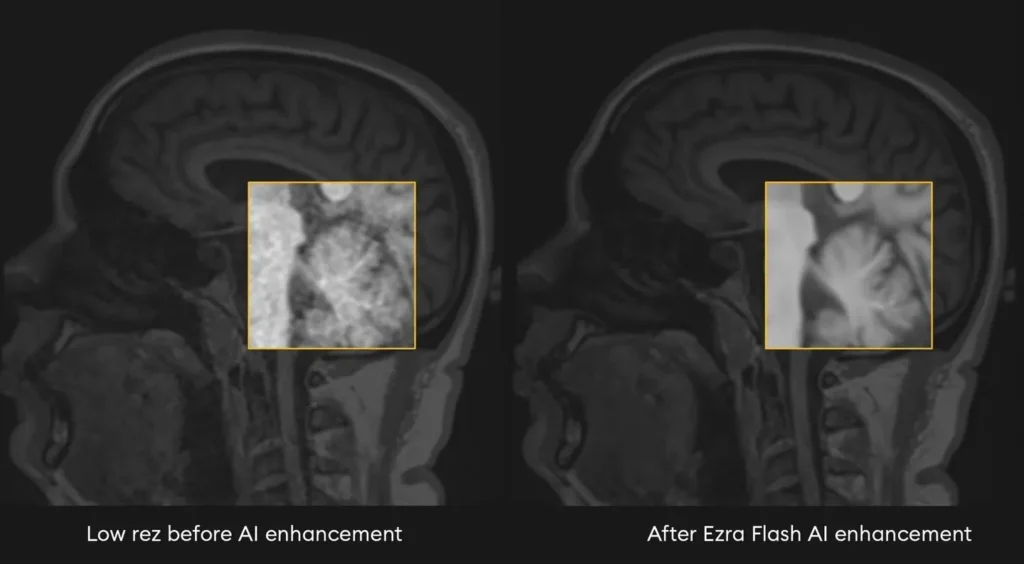Feb 10, 2024,06:30am EST
Bryan Johnson, self-proclaimed as the “most measured person in human history” and renowned for amassing wealth through the sale of his online payments startup to PayPal for $800 million, has become a prominent figure in Silicon Valley’s enduring fascination with “biohacking” aimed at prolonging life. Johnson’s commitment to an anti-aging regimen involves regular measurements, ranging from blood samples to stool analyses. In his pursuit of longevity, he identifies the full-body MRI as the ultimate “gold standard” for comprehensive health assessment.
Utilizing powerful magnets, full-body MRI scans generate highly detailed images of internal structures, encompassing organs, bones, joints, and blood vessels. Johnson passionately endorses these scans, utilizing them extensively for various health evaluations. Expressing his enthusiasm, he shared, “I just did an MRI on every joint in my body in preparation for stem cell therapy. I’m doing one on my brain. I’m using it to quantify my body muscle and fat. In the next month, I’ll be doing six MRIs.”
New York-based startup Ezra has become one of Johnson’s preferred providers for this service. Ezra employs artificial intelligence to expedite the MRI process, aspiring to democratize access to regular full-body scans, making them more widely available to the public.

Emi Gal, founder and CEO of Ezra.EZRA BRYAN JOHNSON
Ezra, a startup championed by entrepreneur Bryan Johnson, has secured $21 million in a recent funding round, bringing its total funding to $41 million and an estimated valuation of $100 million to $150 million. The New York-based company, specializing in full-body MRI scans accelerated by artificial intelligence (AI), aims to make routine full-body scans accessible to the broader public. While Johnson hails the MRI as a “gold standard” for health assessment, medical experts express concerns about potential overtreatment and overdiagnosis for individuals without specific health risks.
Ezra’s CEO, Emi Gal, envisions the scans as a universal pre-screening tool, capable of detecting various health conditions early on. The company, founded in 2018, has already served 7,000 individuals with its $2,500 full-body scans, attracting both biohackers and health-conscious customers. However, critics argue that widespread use of full-body MRI scans may lead to unnecessary follow-up procedures and incur high costs.
The screening process involves a diagnostic exam for indications of cancer or other conditions, with follow-up procedures managed through the patient’s regular doctor. While this approach resonates with the public’s desire for early detection, medical experts emphasize the importance of considering individual cancer risk factors before extensive screening. False positives can lead to unnecessary interventions and treatments.
Despite concerns, Ezra plans to expand its services, leveraging AI to reduce costs and enhance efficiency. Gal envisions lowering the cost of a 15-minute scan to around $500 within two years, using AI to streamline the imaging process. Ezra collaborates with existing radiology centers and employs AI for image enhancement (Ezra Flash) and analysis (Ezra Assist), with a focus on providing accessible, comprehensive, and timely health insights through its innovative approach to full-body MRI scans.

Image of an MRI brain scan using Ezra Flash.EZRA BRYAN JOHNSON
Ezra CEO Emi Gal touts the benefits of the company’s full-body MRI scans, citing common findings such as prostate cancer and thyroid nodules. Gal emphasizes Ezra’s role in providing valuable data, enabling individuals to act upon problematic findings while acknowledging the need for increased scanning to achieve this goal.
However, critics, including radiologist Matthew Davenport, express concerns about potential overtreatment and overdiagnosis, citing data from South Korea that revealed an increase in thyroid cancer cases without a corresponding rise in mortality.
Davenport questions the wisdom of widespread screening, emphasizing the negative consequences observed in South Korea. Gal counters that Ezra recommends monitoring rather than unnecessary interventions for thyroid nodules detected on scans. Despite Gal’s vision of making $500 MRI scans accessible, the question of payment remains, as health insurers typically cover medically necessary procedures. Gal suggests self-insured employers might be willing to provide coverage, but some experts, like healthcare policy professor Ge Bai, express financial reservations.
Bryan Johnson, a supporter of full-body MRI scans, acknowledges the opposing arguments but stresses the importance of comprehensive screening protocols for prevention. Gal anticipates that releasing data on false positives in the coming years will change detractors’ perspectives and garner support from insurers. Despite differing opinions, Ezra continues to attract customers, with Gal noting a high referral rate and embracing competition in the emerging market, exemplified by Kim Kardashian’s endorsement of rival startup Prenuvo.

